Polyurethane molding is defined as a procedure for manufacturing and fabricating plastic parts. The process is achieved by driving a urethane polymer into a mold and allowing it to cure. Read More…
TPC, Inc. is a leader in the polyurethane molding industry. Our state-of-the-art manufacturing facilities focus on providing high-quality products, competitive pricing, and exceptional customer service. Our team of experts is dedicated to the production and innovation of our products. As a result, TPC, Inc.’s custom-fit solutions are perfected for customers of all industries.
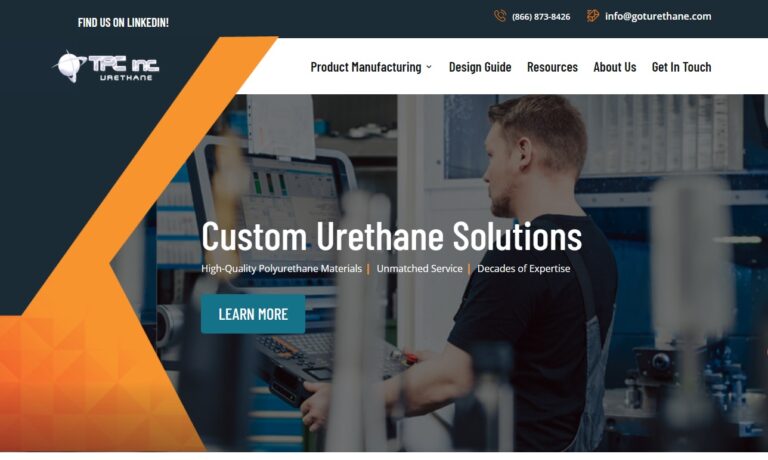
From concept, to production, to delivery, we have over 40 years experience with made-to-order cast urethane & cast polyurethane elastomer products. Weaver Industries offers urethane wheels, polyurethane molding, molded urethane, urethane sheets, & urethane/polyurethane manufacturing. Skilled at custom casting, discover the advantages of our urethane sheet and Action Mallet heads.
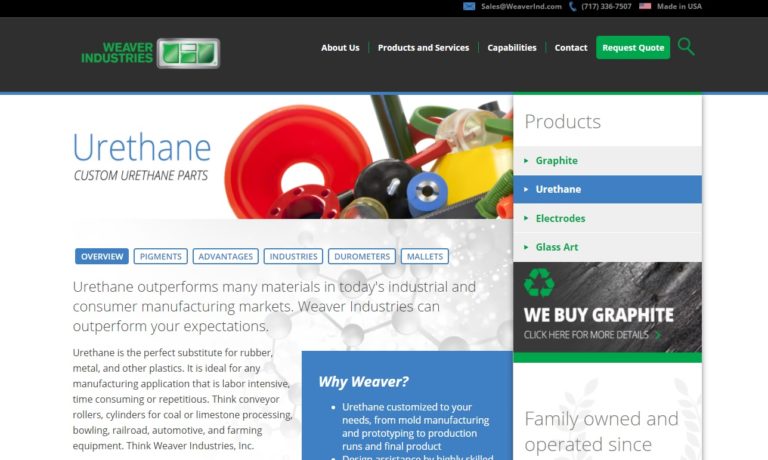
FallLine has been a manufacturer of custom polyurethane molding products for various industries since 1981. We offer a wide range of proven materials ranging from 40A - 80D, as well as the capability to formulate materials to meet specific needs.
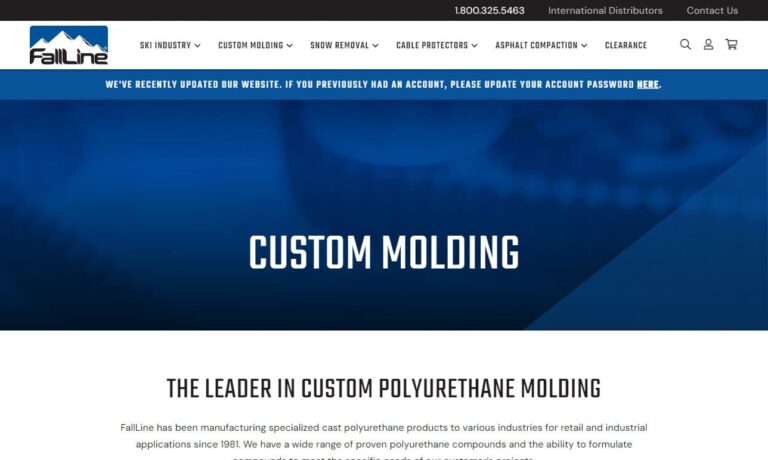
Since 1979, Uniflex has been a leading manufacturer of urethane products. We provide high-quality urethane rollers and urethane castings, as well as urethane molded products available in an array of colors. Uniflex offers customized body blocks and engine components for the automotive industry. Our team is dedicated to advancing our company and raising industry standards.
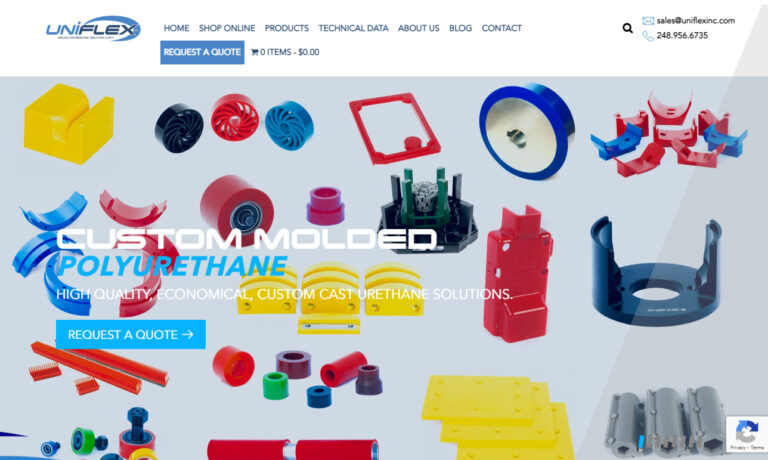
At Dynatect Ro-Lab, Inc., we take pride in our expertise and specialization in polyurethane molding, offering unparalleled solutions for a myriad of applications. With our advanced capabilities, we excel in bonding urethane to diverse metal sub-surfaces, including aluminum, brass, and steel. As a team, we understand the unique demands of various industries, and our commitment to quality is...
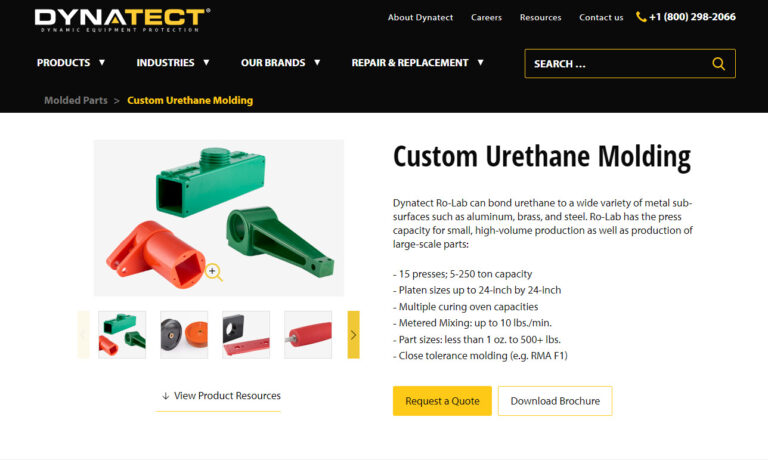
More Urethane Molder Companies
What Is Urethane Molding?
Polyurethane can be processed easily, making it more efficient during the fabrication of industrial parts and consumer goods. Polyurethane molding helps to achieve complex geometries and tight tolerances.
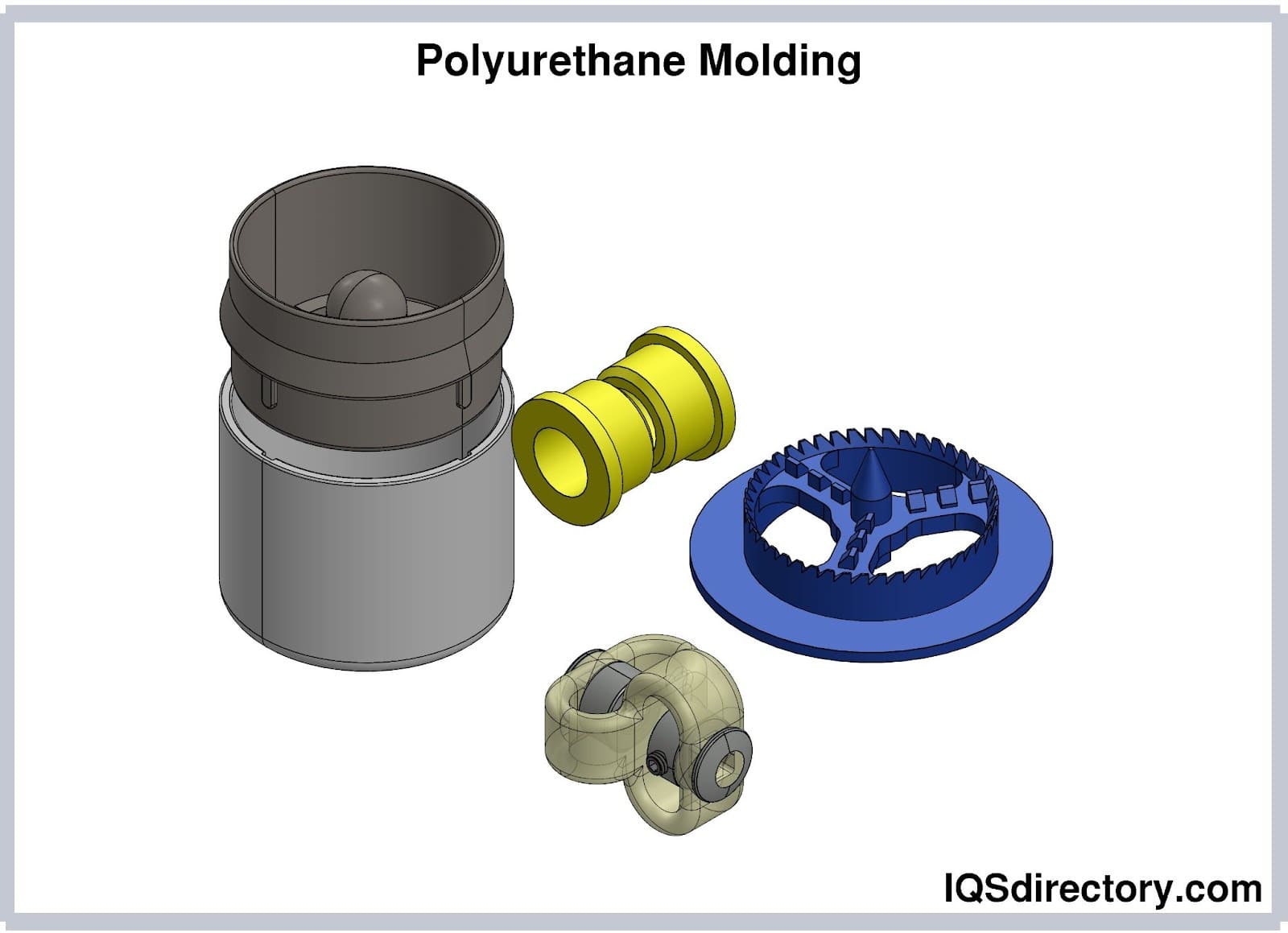
Properties of Urethane Molders
Some of the properties of urethane molders include:
Hardness
Hardness is defined as how a material resists surface deformation. For example, urethane shows a high hardness number on a durometer, as illustrated in the figure below.
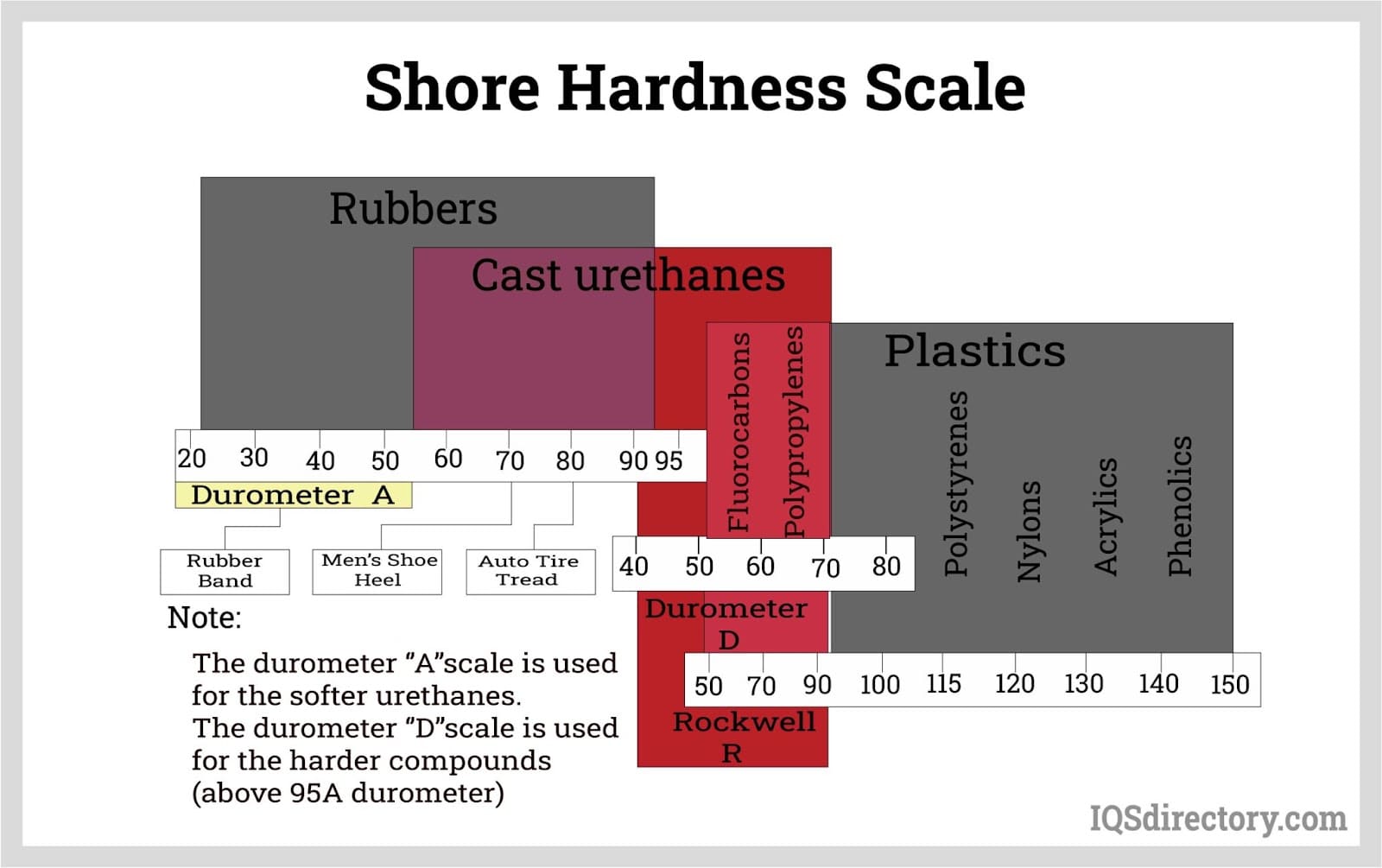
Abrasion Resistance
Polyurethane materials are blended to have a low coefficient of friction, a high tear strength, and great sliding abrasion resistance. Polyurethanes with good resilience are used for impingement abrasion.
Resilient polyurethanes can yield elastically, allowing the forces from the impacting particles to be evenly spread on the surface.
Tear Strength
Tear strength is the capacity of polyurethane to withstand applied tensile forces. The tensile force tends to tear the material and continue the tear in the body of the specific material. Polyurethane is well known for its good tear strength and abrasion resistance.
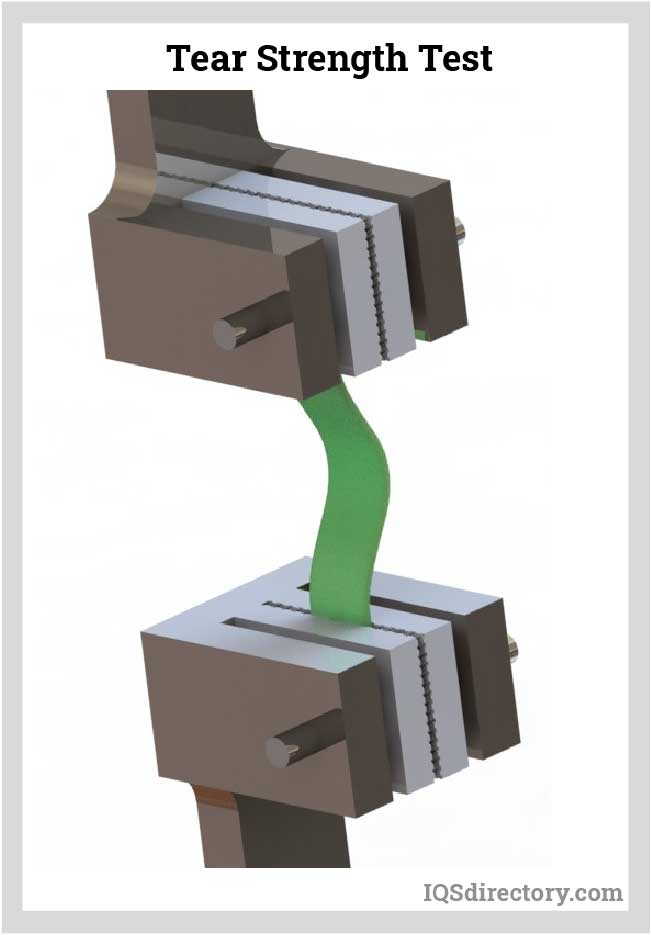
Machinability
This property allows polyurethanes to be designed and shaped into any desired geometries. Machinability has to do with removing all imperfections on the product surface.
Chemical Resistance
Polyurethanes have chemical resistance characteristics that depend on the polyol being used. There are ether-based and ester-based systems. The former is resistant to water, while the latter resists solvents, oils, and petroleum compounds.
Raw Materials Used in Polyurethane Molding
Polyurethanes are made of different components. The primary constituents are diisocyanates and polyols. Some of the components used are curatives. Additives are also part of the materials, which bring about some unique properties of the formulation of specific polymers of polyurethane. Other groups of components that help in producing gasses for making the foam structure are catalysts, blowing agents, and surfactants.
Polyol
These are organic molecules that have one or more groups of hydroxyl. The ones used in urethane casting are polyesters or polyether types.
Diisocyanate
Diisocyanate forms the resin part of the system of polyurethane. It is usually grouped into two types: aliphatic and aromatic. The aliphatic type has a yellowing appearance, and its reactivity is very low. This makes it useful in coatings for chemically-resistant materials. Their application is mostly found in polyurethane films, coatings, and castings where color stability is needed.
The aromatic type stands for over 90% of the total diisocyanate consumption. It is further divided into Naphthalene, Toluene, and Methylene diisocyanate.
Types of Urethane Molding Processes
Types of urethane molding processes include:
Injection Molding
It is a process of making polyurethane moldings. The process involves melting and heating powdered or pelletized polyurethane to make it flow. Afterward, the polyurethane is driven by a reciprocating ram-type screw into a hard mold or tool.
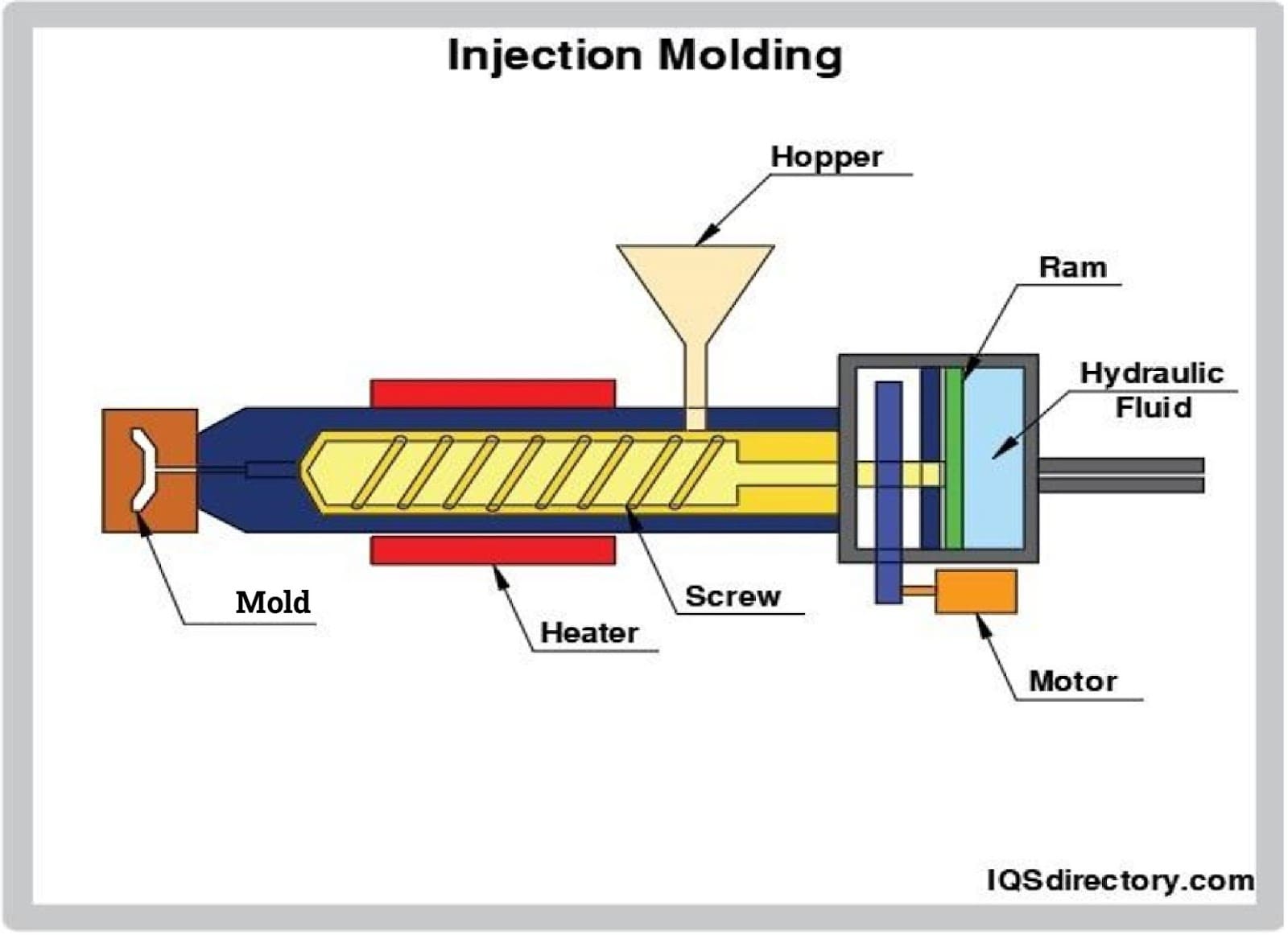
Pressure at high atmospheres is then used to drive the polyurethane into the crevices and cavities of the mold. The mold is then machined, followed by the curing process, before the polyurethane is cooled and released.
Compression Molding
Compression molding uses a mold with two halves, the upper and the lower. The latter receives a compound polyurethane mass, and the two are compressed afterward.
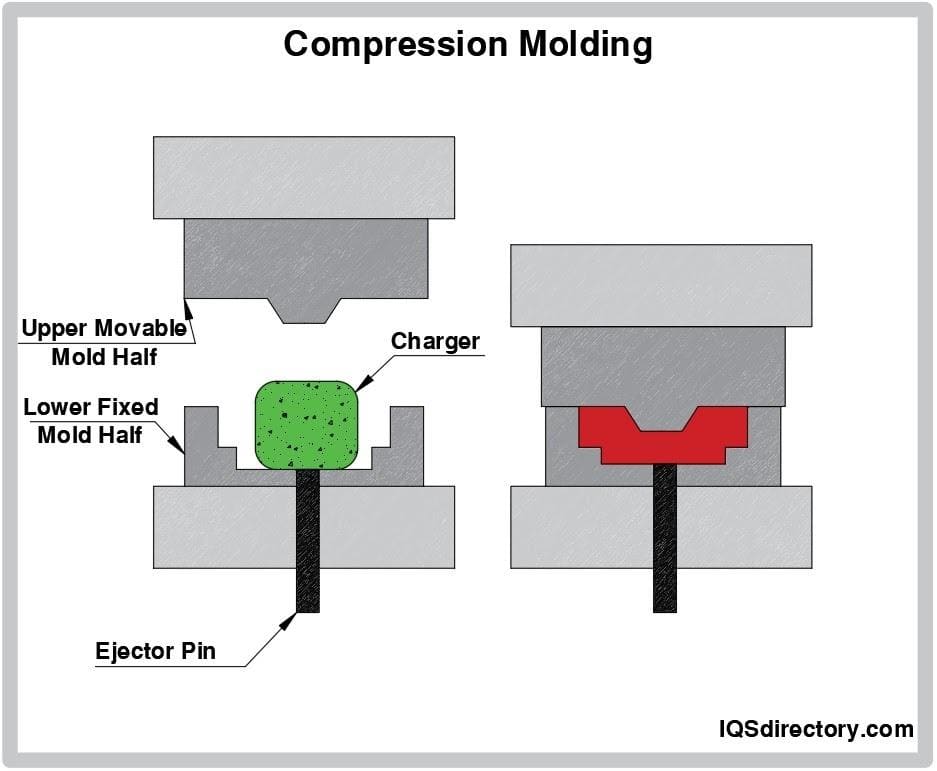
This forces the polymer mass to flow with respect to the design or shape of the mold. A homogeneous product is formed as a result of the gas vented out. After the molding process, the product goes through curing and cooling before release.
Rotational Molding
Rotational molding is a procedure mostly used when producing hollow seamless products. Powdered polyurethane is loaded into a mold which is heated and rotated to melt the polymer. The material then coats the mold surface.
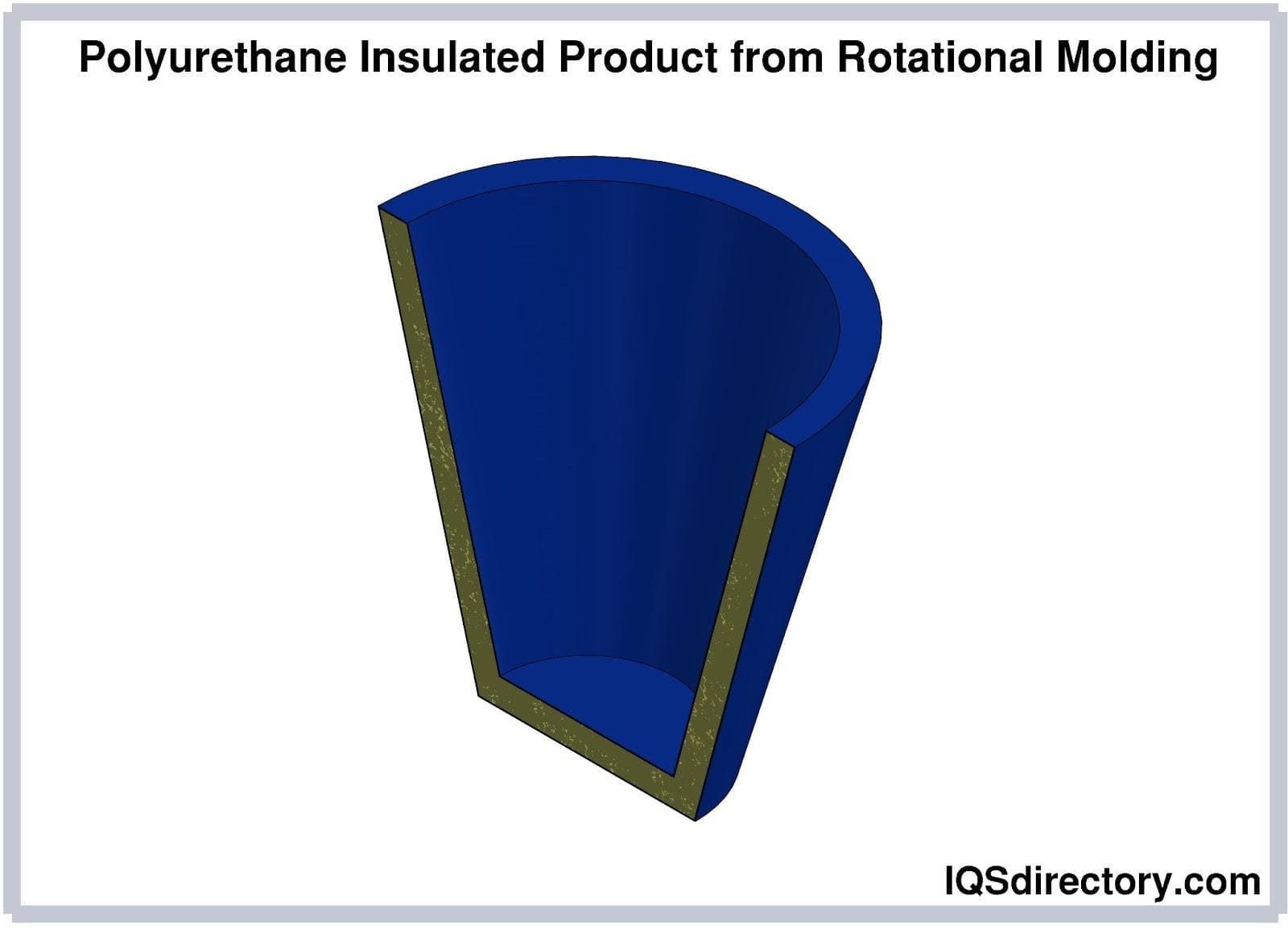
Blow Molding
Blow molding involves creating hollow products by inflating a softened pre-form in the mold.
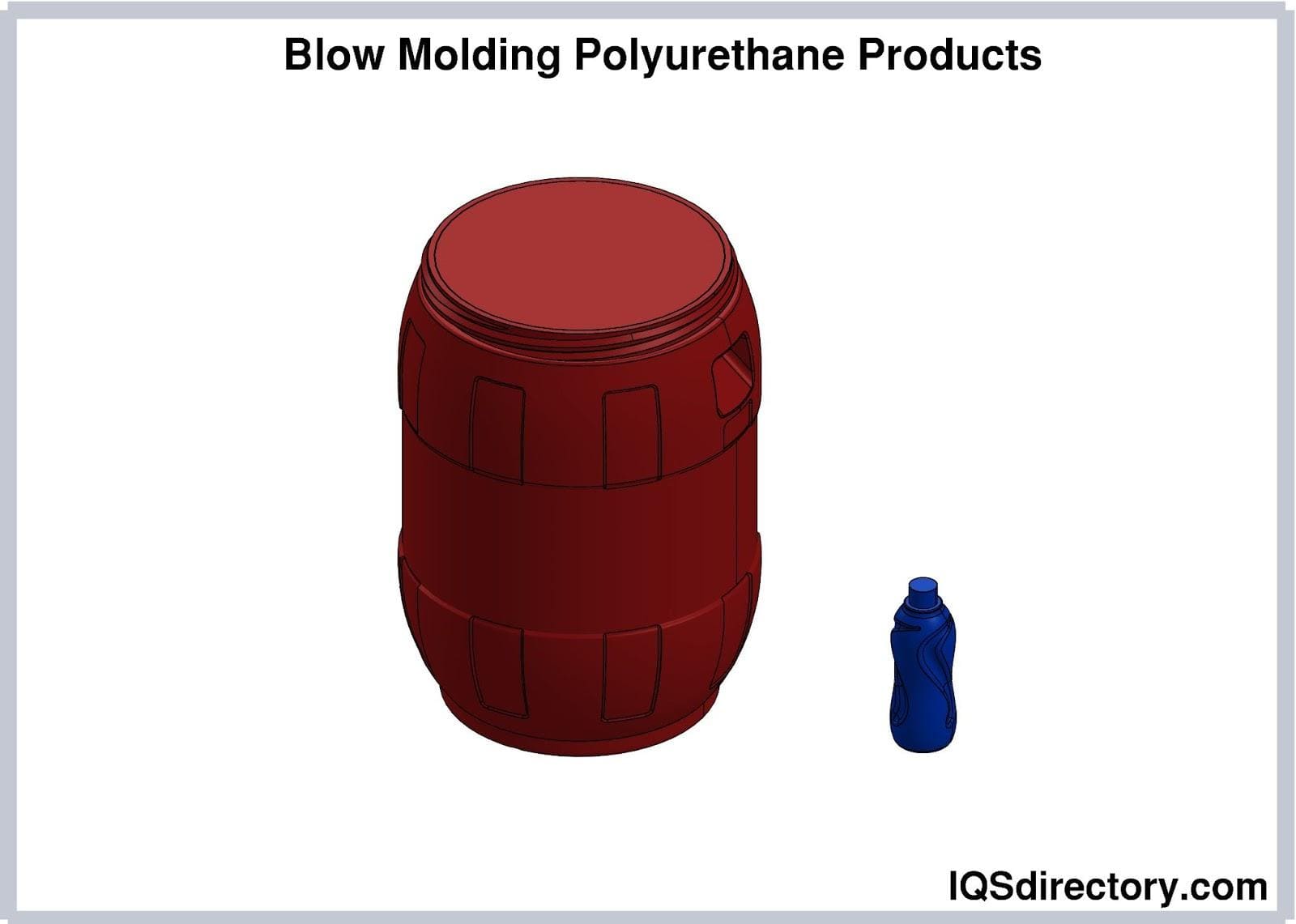
Casting
Casting involves the injection of polyurethane and resins into a soft mold made of silicone elastomer. It has similarities to injection molding, although they may differ in the use of hard metal molds.
Applications of Urethane Molders
Urethane moldings are commonly used and applied in:
- Furniture for underlays, cushions, and covers
- Building insulation in the construction industry
- Bumpers, fenders, and bushings for the automotive industry
- Manufacturing wheels, rollers, and cams
Choosing the Proper Urethane Molder Company
To make sure you have the most beneficial outcome when selecting a urethane molder, it is important to compare at least 4 to 5 urethane molders using our urethane molding directory. Each urethane molder has a business profile page that highlights their areas of experience and capabilities and a contact form to directly communicate with the company for more information or request a quote. Review each urethane molder website using our proprietary website previewer to get an idea of what each company specializes in, and then use our simple RFQ form to contact multiple urethane molders with the same message.

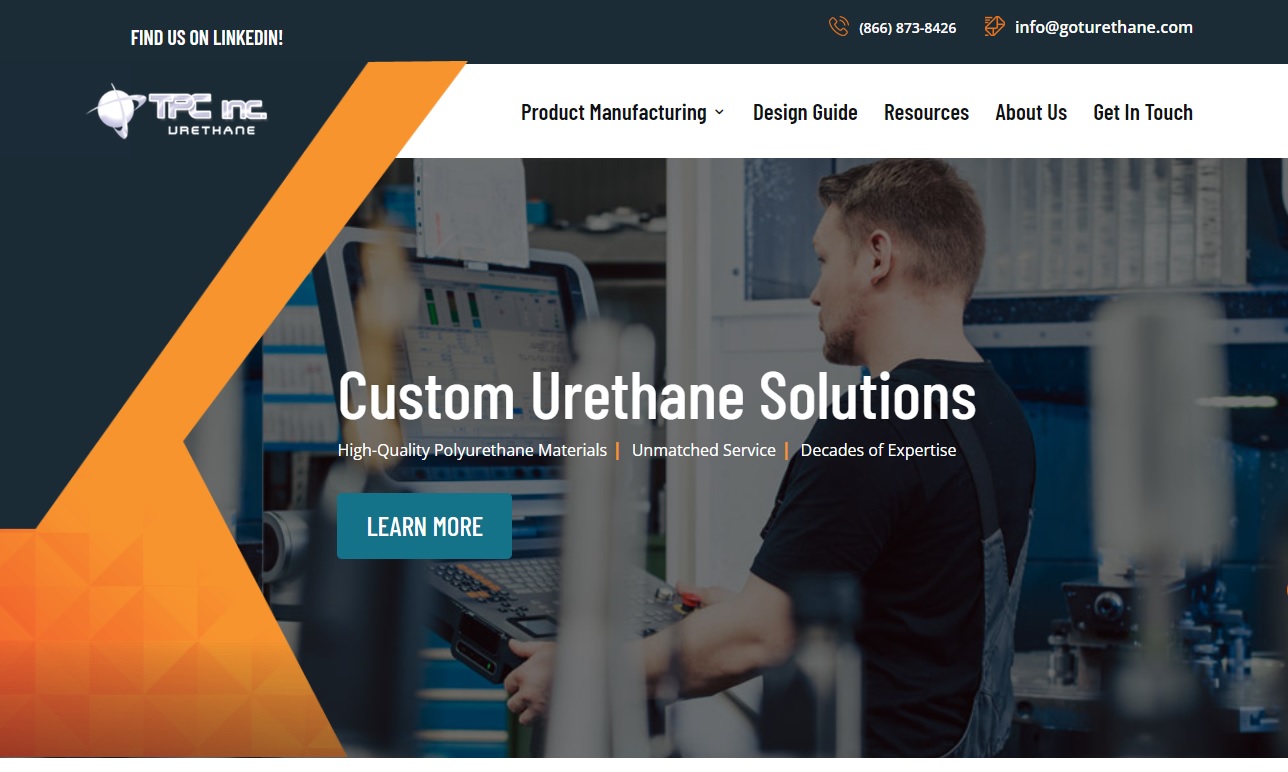
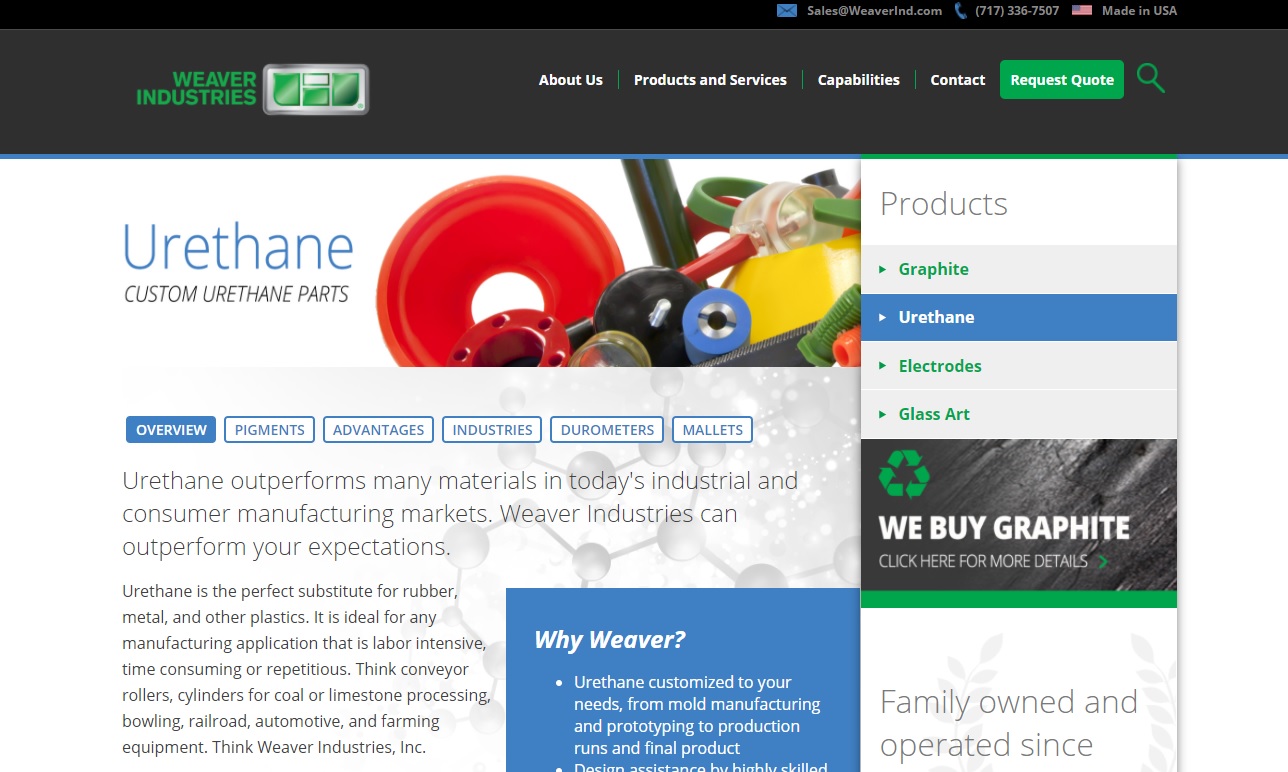
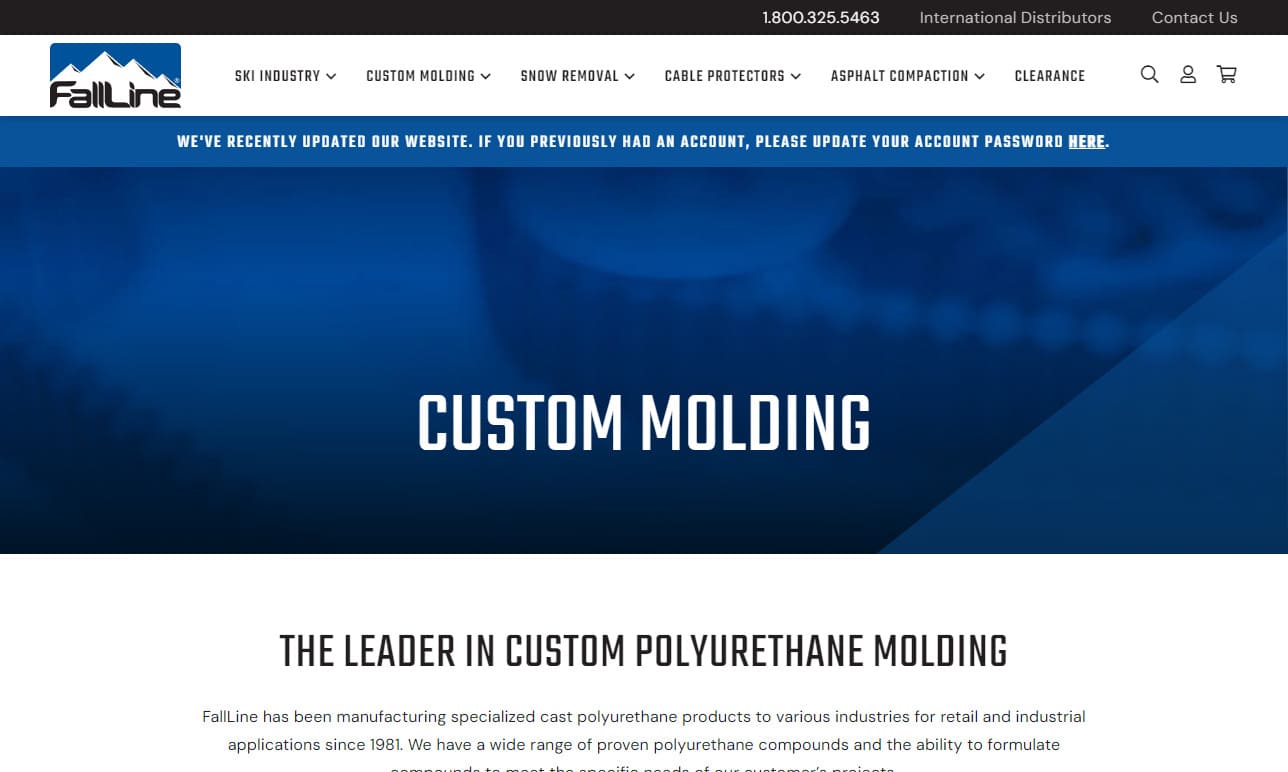
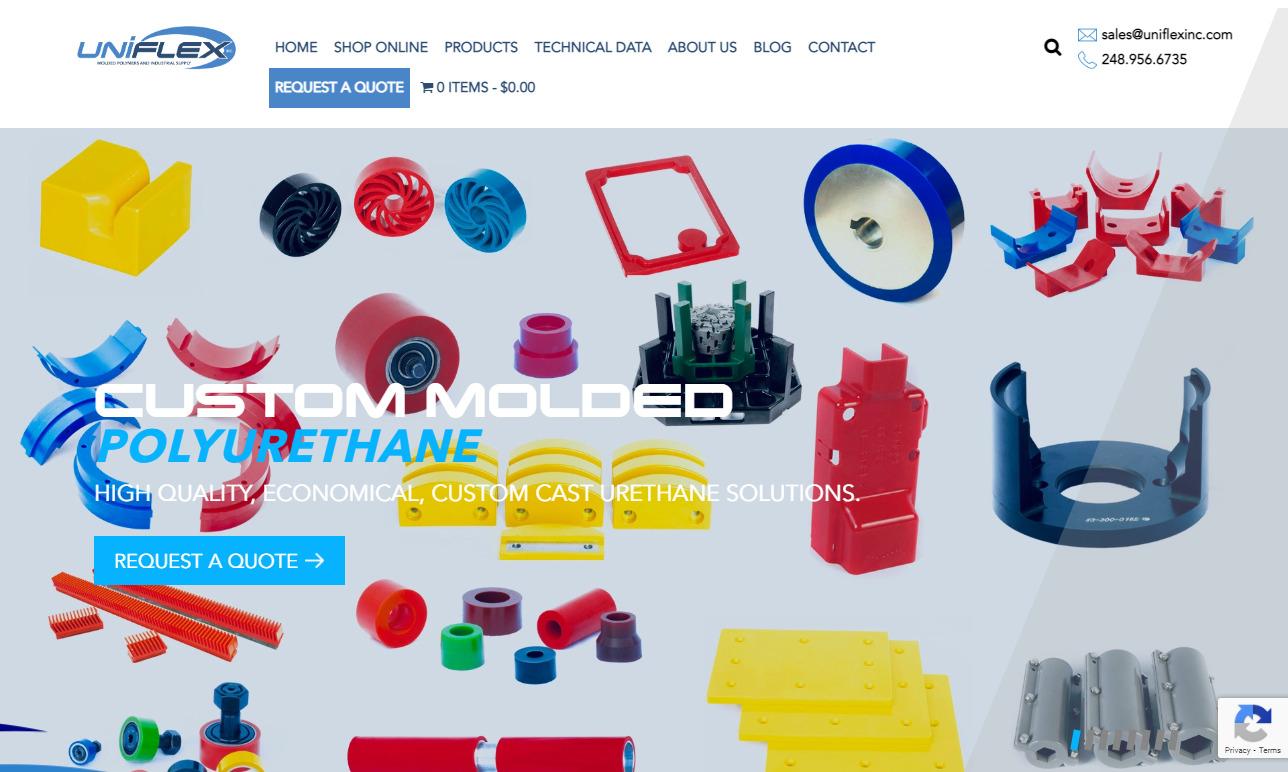
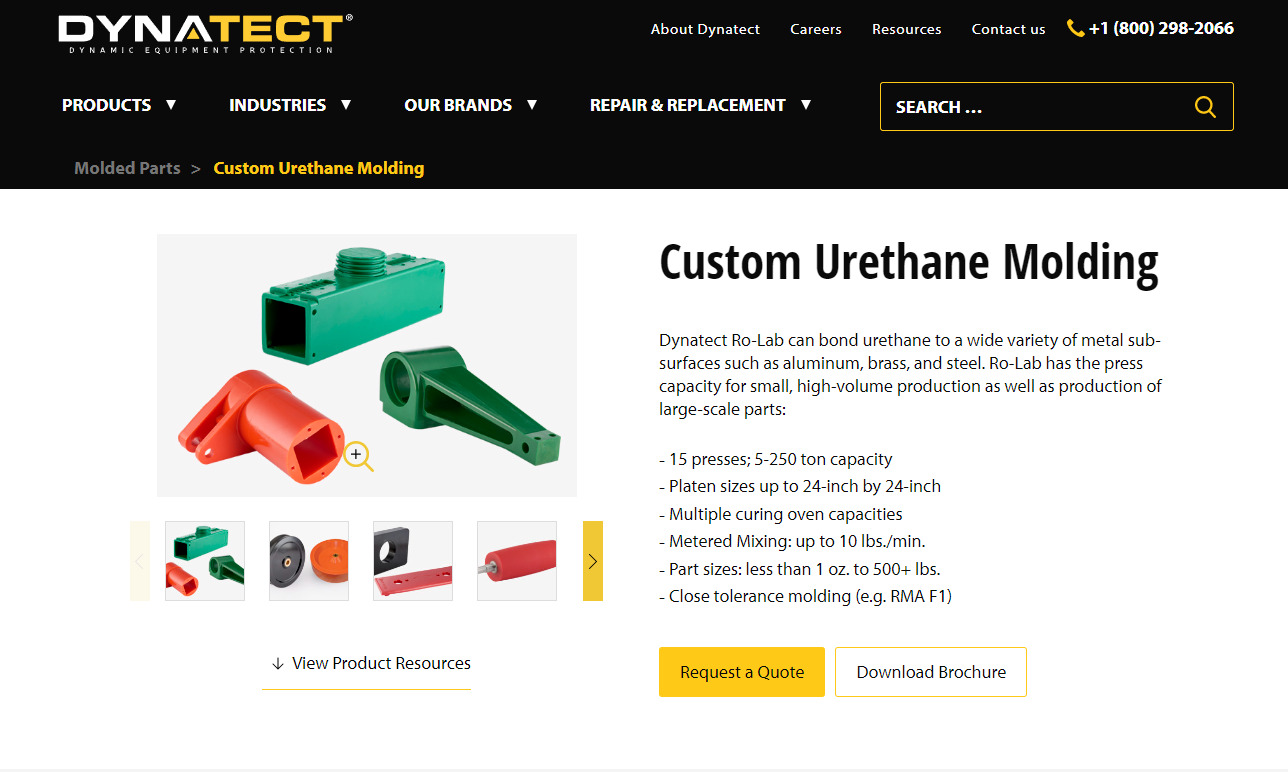
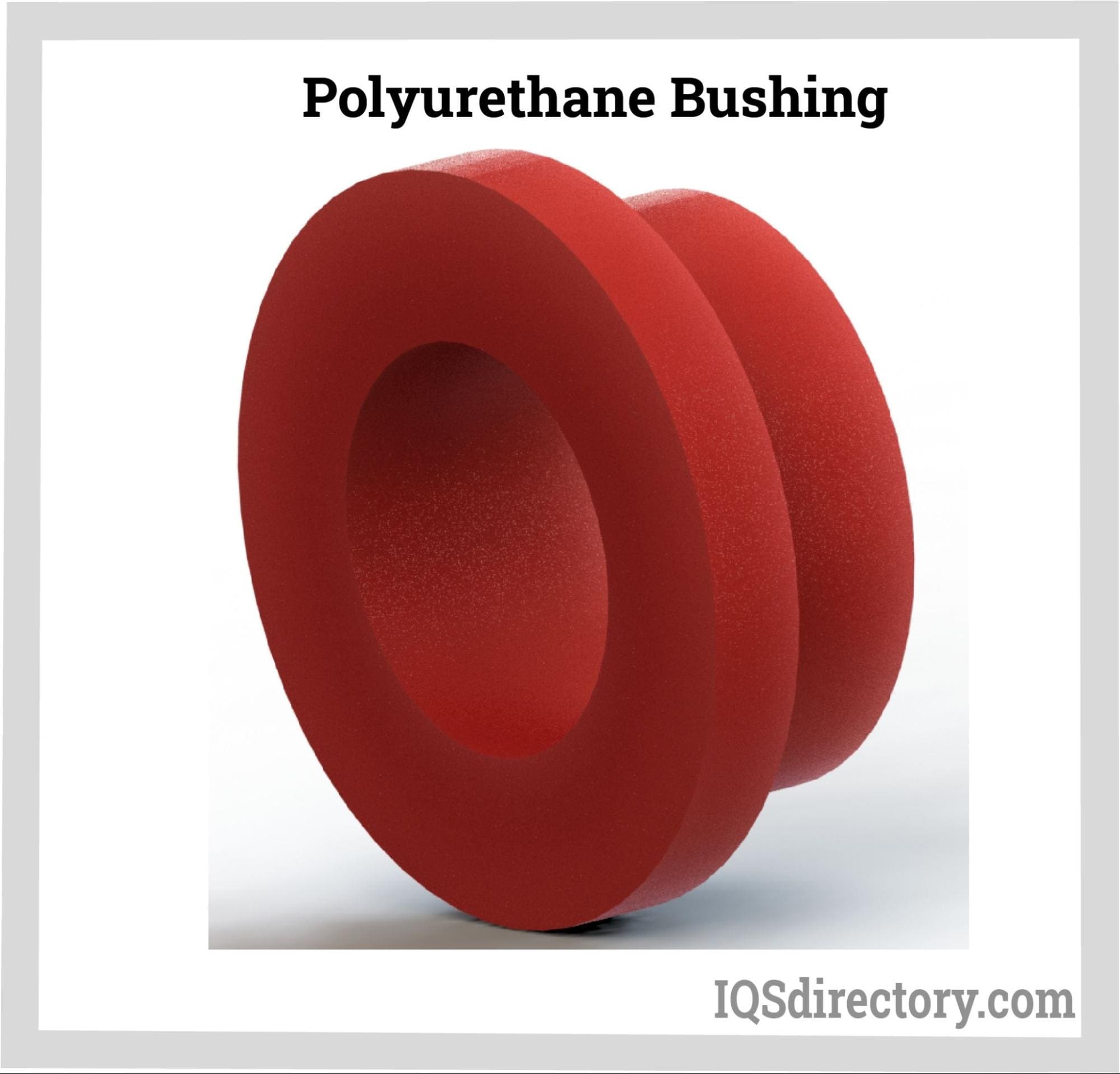

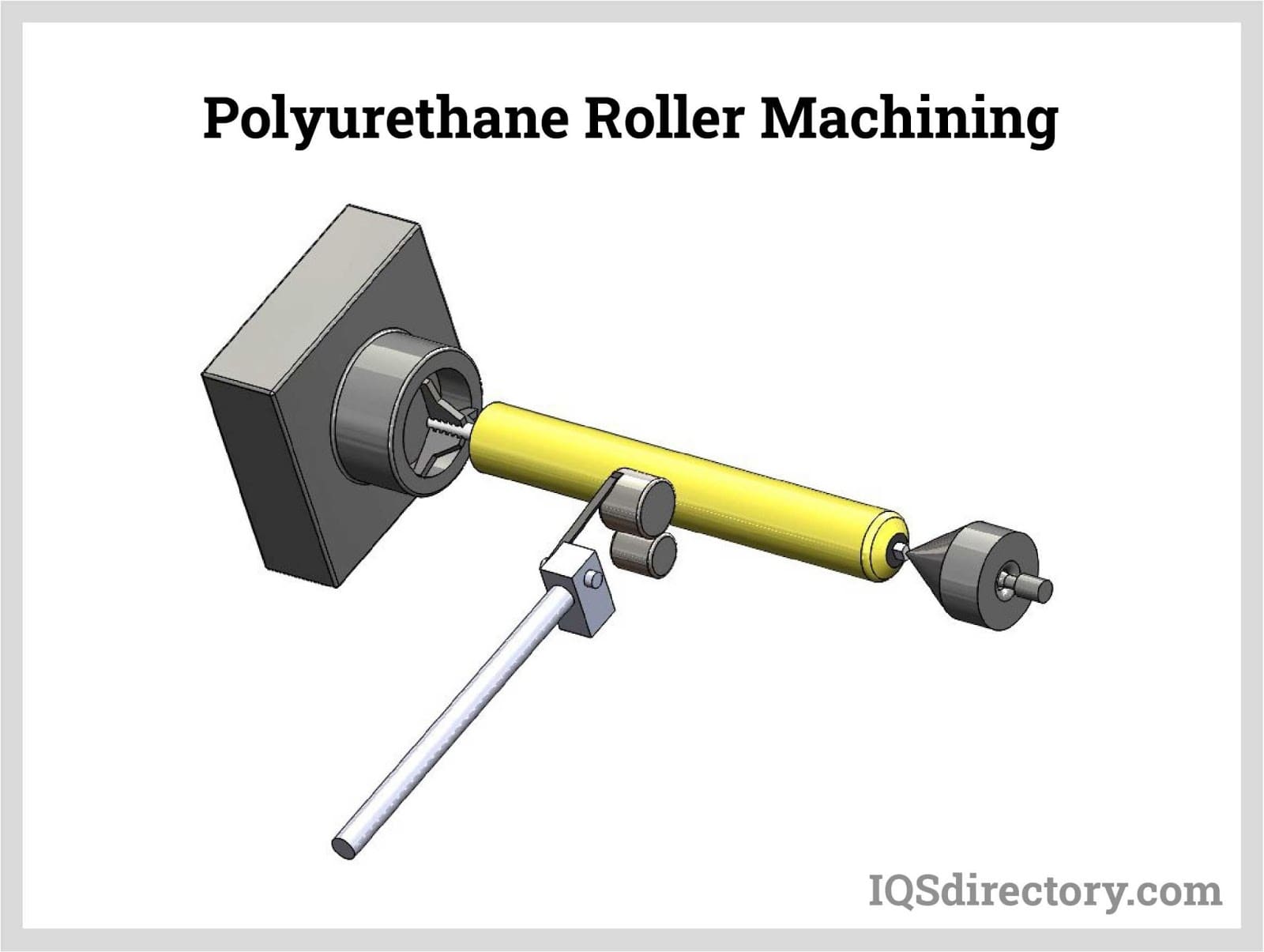
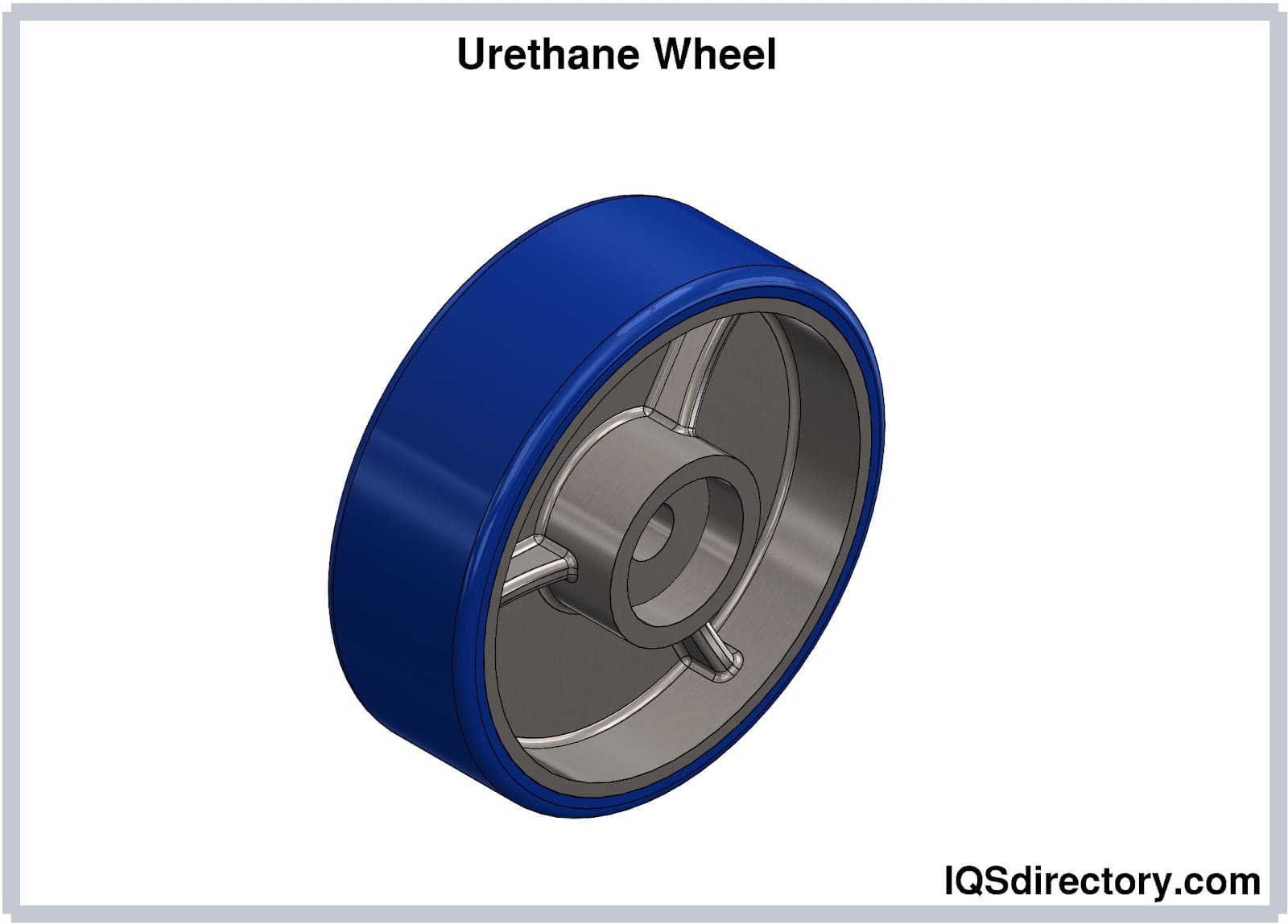
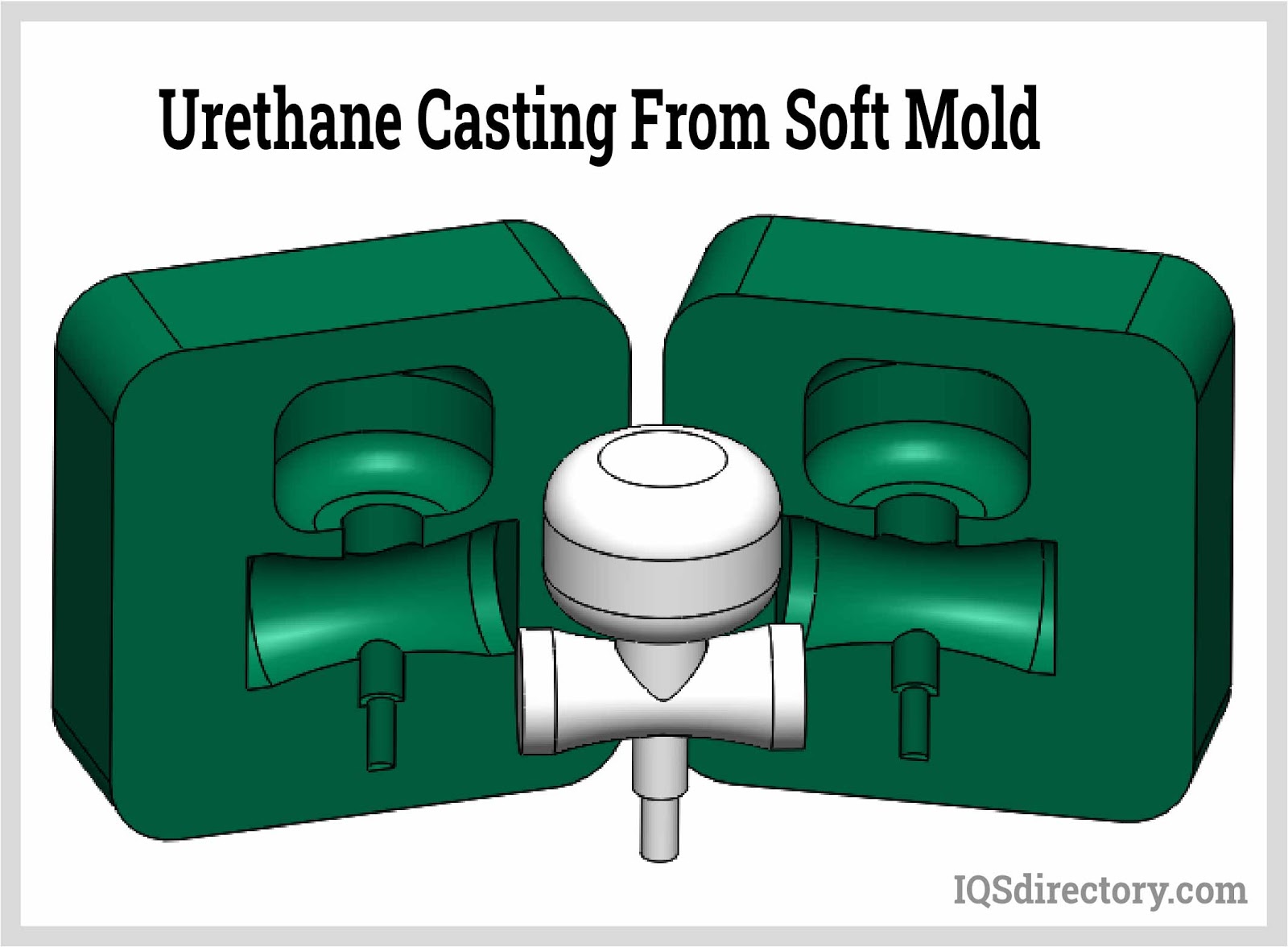
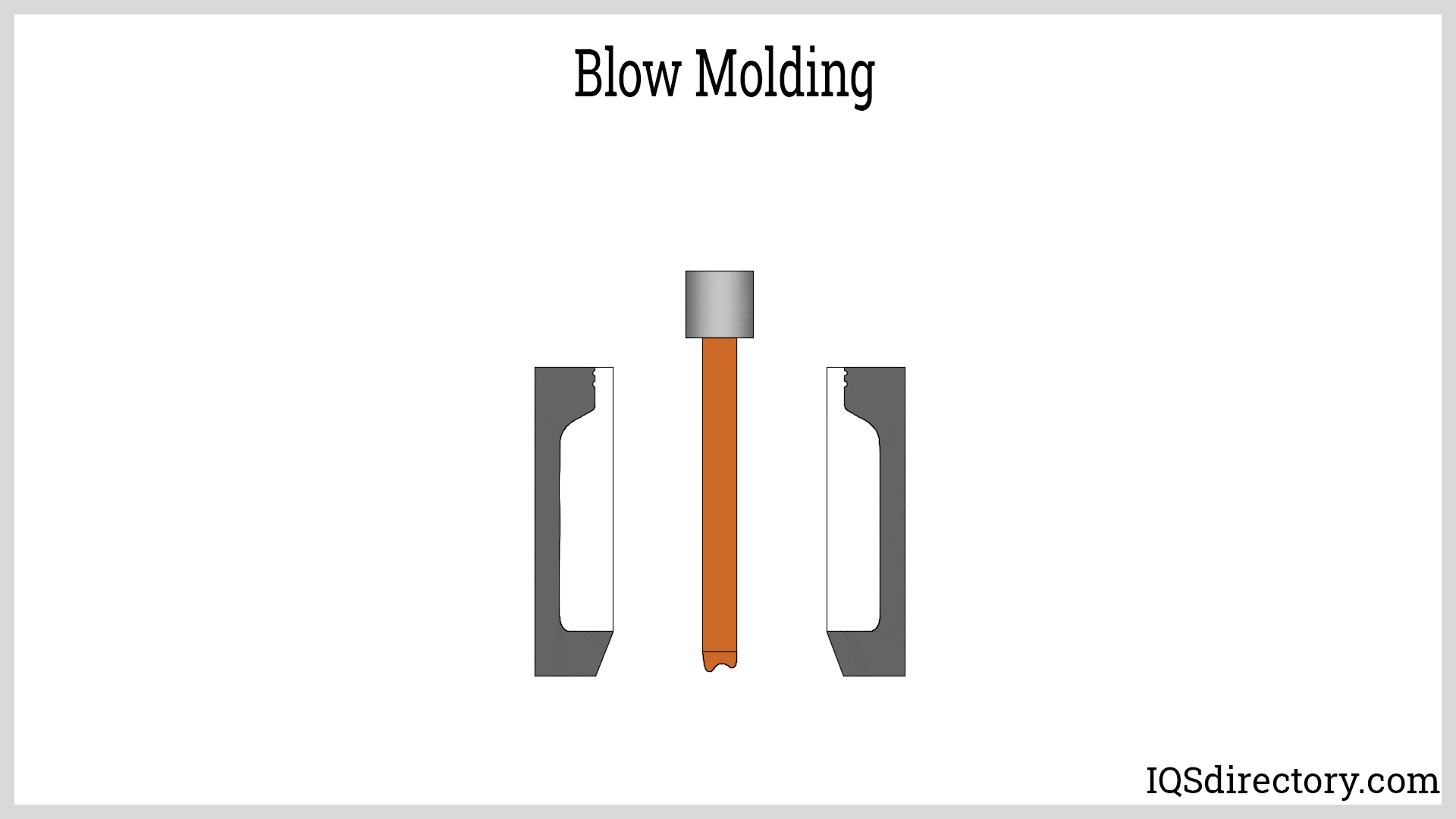
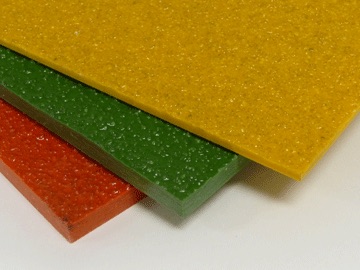 Fiberglass Fabricators
Fiberglass Fabricators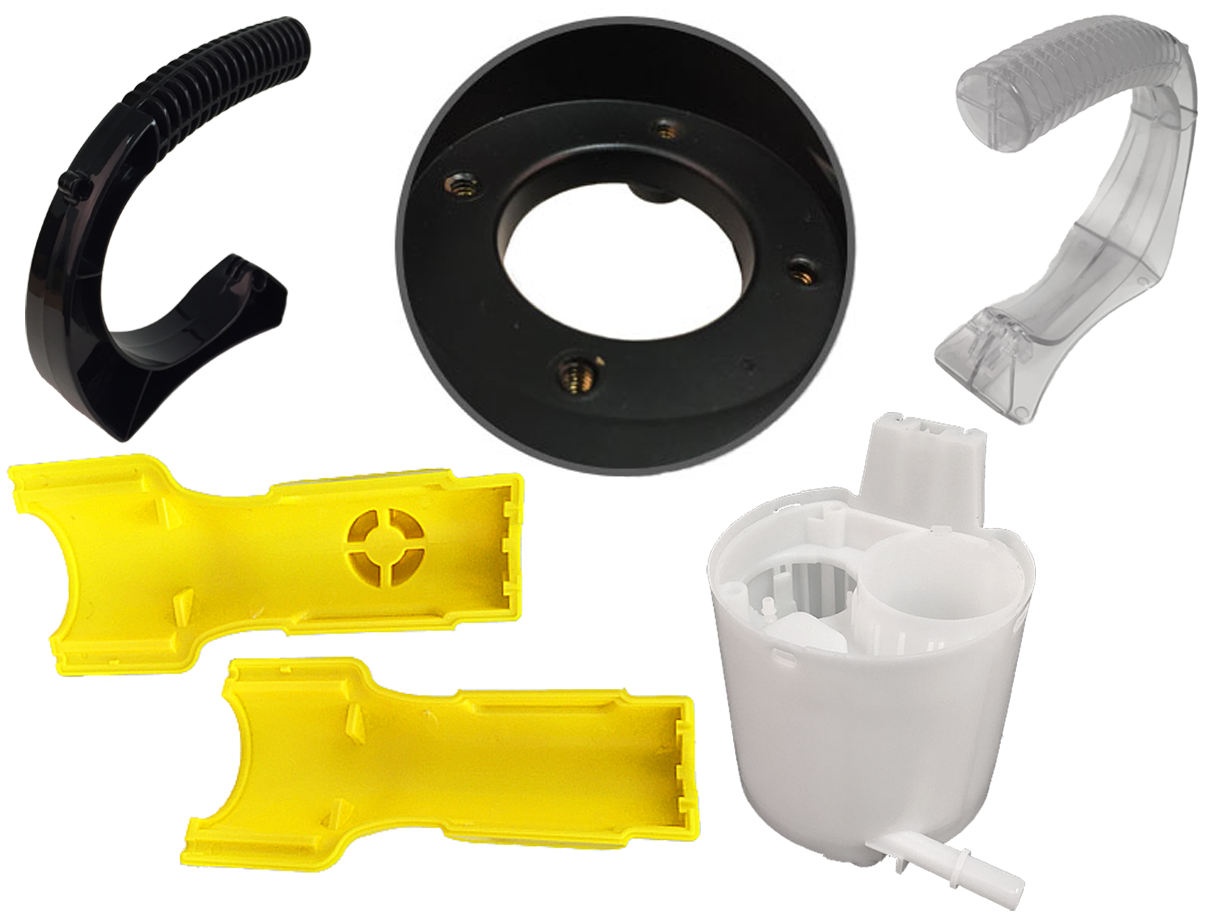 Injection Molded Plastics
Injection Molded Plastics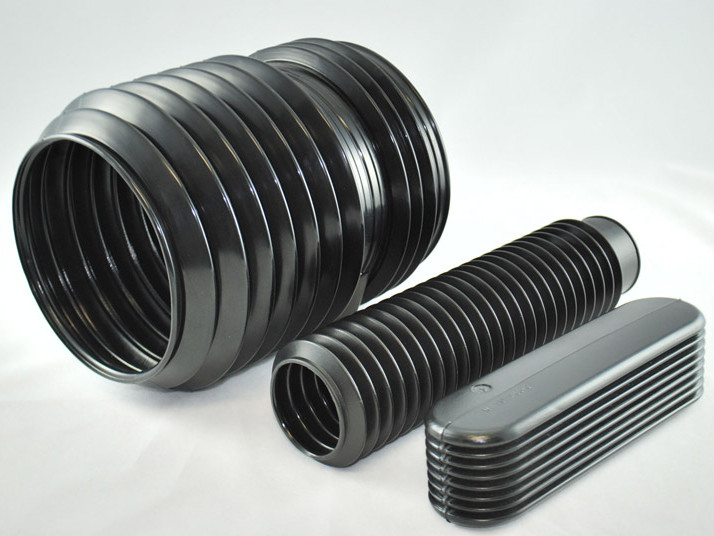 Plastic Blow Molding
Plastic Blow Molding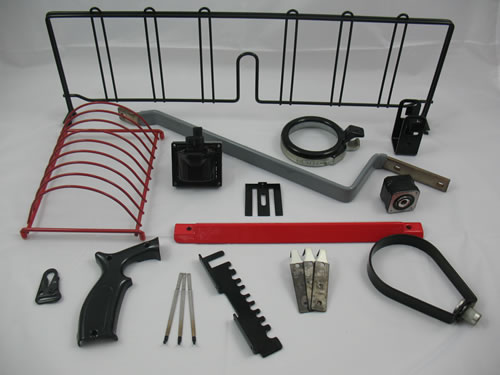 Plastic Dip Molding
Plastic Dip Molding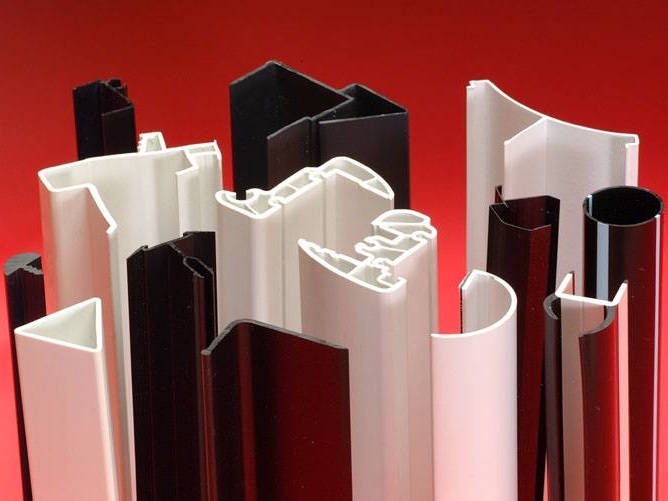 Plastic Extrusions
Plastic Extrusions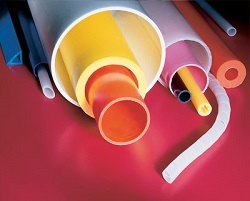 Plastic Tubing
Plastic Tubing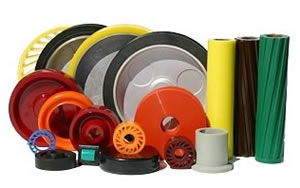 Polyurethane Molding
Polyurethane Molding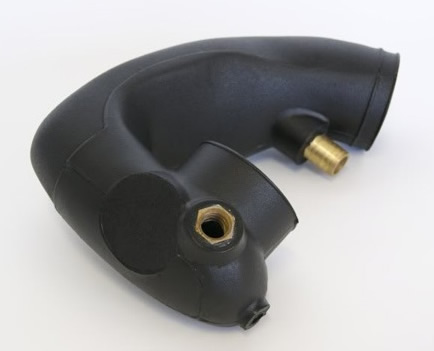 Rotational Molding
Rotational Molding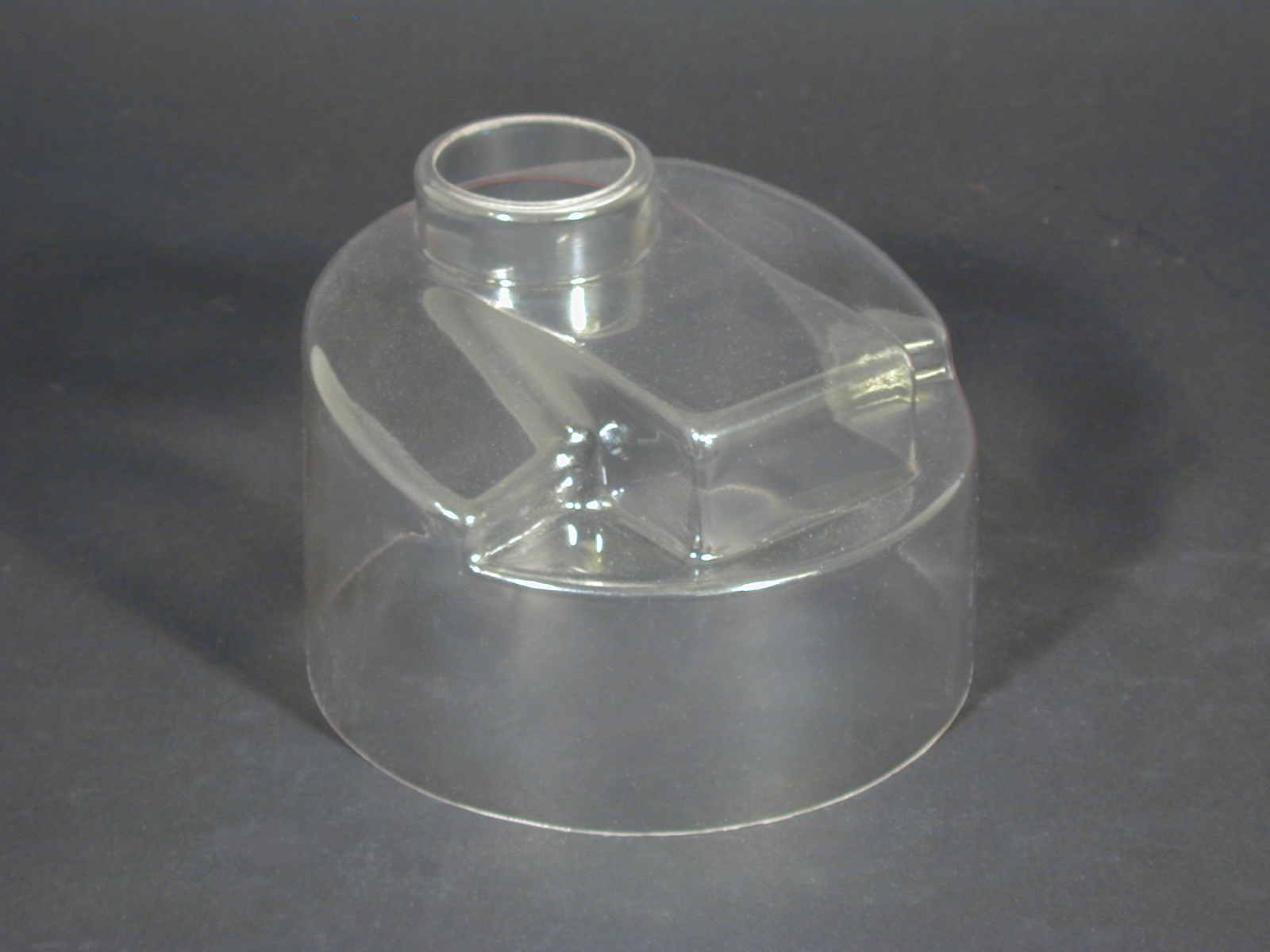 Vacuum Forming
Vacuum Forming Castings & Forgings
Castings & Forgings Bulk Material Handling
Bulk Material Handling Electrical & Electronic Components
Electrical & Electronic Components Flow Instrumentation
Flow Instrumentation Hardware
Hardware Material Handling Equipment
Material Handling Equipment Metal Cutting Services
Metal Cutting Services Metal Forming Services
Metal Forming Services Metal Suppliers
Metal Suppliers Motion Control Products
Motion Control Products Plant & Facility Equipment
Plant & Facility Equipment Plant & Facility Supplies
Plant & Facility Supplies Plastic Molding Processes
Plastic Molding Processes Pumps & Valves
Pumps & Valves Recycling Equipment
Recycling Equipment Rubber Products & Services
Rubber Products & Services